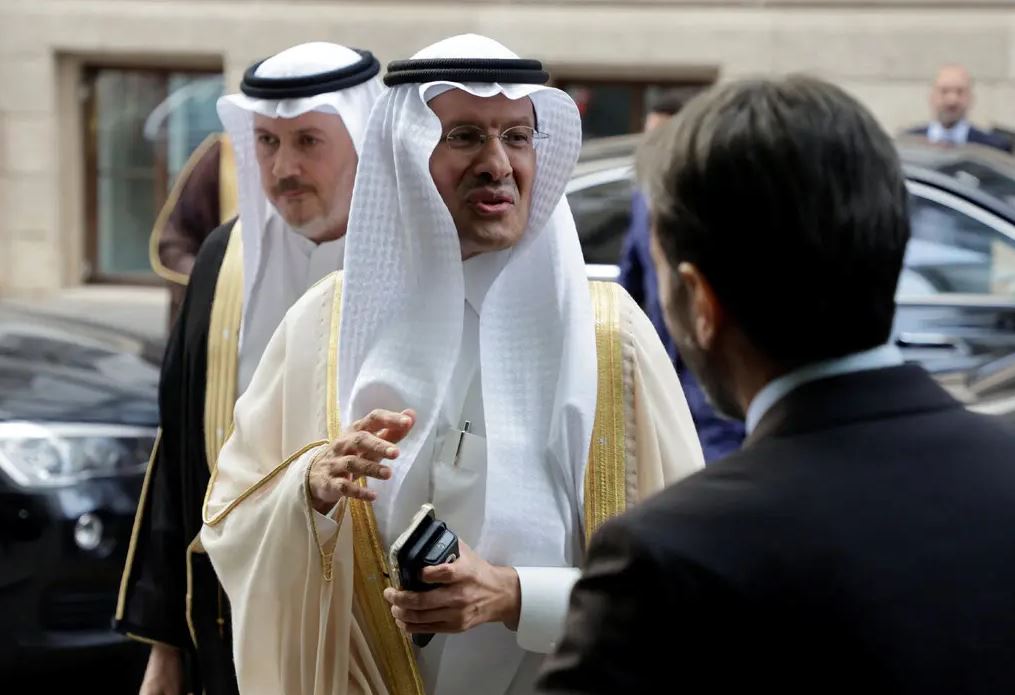On Sunday, the Organisation of the Petroleum Exporting Countries and Other Major Oil Producing Countries (OPEC Plus) decided to reduce production by an extra one million barrels per day in an attempt to stabilise oil prices.
Russia and its partners were pushed to reach an agreement in an effort to calm the oil market’s gloomy mood in recent days. Oil prices have fallen by over 15% in the previous seven months, despite two major decreases in production since October.
As a consequence of intensive talks on Saturday and Sunday, various nations’ production quotas will be adjusted, with the United Arab Emirates’ share increasing and that of others decreasing. Richard Bronze, director of geopolitics at Energy Aspects, a research group, stated, “This is definitely not a clean and simple deal.”
At the press conference that followed the meeting, participants expressed doubt that Russia would really adhere to the agreed-upon output cuts. Concerns have been raised about Russia’s high production levels and the country’s growing influence in Asian markets like India, which has come at the cost of oil producers in the Middle East.
Suhail al Mazrouei, the oil minister of the United Arab Emirates, remarked that “some of the data from Russia just does not add up.” Officials in Russia, he added, “are reaching out to explain the numbers.”
OPEC Plus issued a statement saying it was taking action “to achieve and sustain a stable oil market,” and that it was continuing its current strategy of being “proactive, and pre-emptive.”
Market participants saw Saudi Arabia’s pledge to reduce its output to about nine million barrels per day as the most important aspect of the accord. During the press conference where he made the announcement, Saudi Oil Minister Prince Abdulaziz bin Salman referred to the policy shift as “the Saudi lollipop.”
Possibly, he was able to secure some long-term benefits. Some of OPEC Plus’s production choices have been baffling for a long time due to these disagreements, but the new accord aims to resolve them. Oil-producing nations like Nigeria and Angola, for instance, have struggled for years to fulfil their objectives due to a lack of investment and other factors. As of the year 2024, they will begin to suffer reductions in their quotas.
However, the United Arab Emirates, which is spending billions to boost its oil production capacity, came out on top with a tiny victory on Sunday, when it was awarded a 200,000-barrel-per-day increase in its quota, effective in 2024. The United Arab Emirates has been trying to increase oil production for quite some time now. In 2021, it even had a rare public dispute with the Saudis, implying that it would leave OPEC in order to do so.
It was expected that the summit would go late into the night in Vienna since oil is so important to the economy and governments of many of these nations.
Mr. Bronze from Energy Aspects said that the agreement made an effort to address problems that had plagued the team in the past. After the market has had a chance to process the information, he continued, “I do think there is real substance here.”
The oil ministers got together over the weekend to discuss how to revive the flagging markets. Prince Abdulaziz had been the most outspoken in voicing concerns that the group may reduce output to prop up prices and catch out traders who had gambled on lower pricing.
Only two months had passed since OPEC Plus announced a previous round of cutbacks before Sunday’s meeting. Those cuts were first implemented in May, so their effects are still being seen now. The termination of China’s “zero Covid” policy has resulted in slower economic growth than planned, which analysts believe has had a significant impact on the oil markets, where prices have fallen by around 12 percent since mid-April. That may make shortages less of a problem.
Brent oil, the worldwide standard, gained around $3 a barrel to about $76 on Thursday and Friday after Washington struck an agreement on the debt limit, but prices are still somewhat below where they were on the day of the April reduction.
The statement was made only days before U.S. Secretary of State Antony Blinken was set to go to Saudi Arabia for meetings with Saudi officials.
Saudi Arabia is the de facto leader of OPEC Plus, and the country has become more aggressive in its oil policies under Prince Abdulaziz Ahmed and his younger half brother, Crown Prince Mohammed bin Salman, preferring to make cuts in an effort to keep a floor under prices instead of letting markets take their course.
Analysts believe the Saudis are increasingly uneasy with prices below $80 a barrel for Brent oil, despite the fact that OPEC does not disclose price objectives and its leaders maintain they take a long-term perspective. Since OPEC Plus accounts for more than 40% of world oil production, it has significant control over markets if it chooses to use it.
There has been tension between the Saudi-led OPEC cuts and the Biden administration, which wants to keep oil costs low to help out American drivers and maintain a lid on the already poor global economy.

